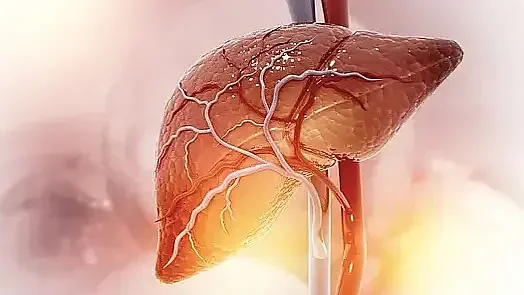Medications That Can Cause Fatty Liver

How Common Medications Affect Your Liver
Years ago, I encountered a patient in his mid-50s who was referred to me for abnormal liver function tests. He wasn’t overweight, didn’t drink much, and lived a relatively healthy life. When we dove deeper, the real culprit was revealed: a long-term prescription for one of the medications that can cause fatty liver. This medication, used to control his cholesterol, was silently contributing to fatty liver disease. He was shocked that something he relied on to keep him well was, in fact, adding strain to his liver.
Why Your Medication May be Affecting Your Liver
Medications can sometimes act as double-edged swords. While they may be crucial in managing one health condition, they can introduce new challenges. One of these challenges is the potential development of fatty liver disease. In particular, non-alcoholic fatty liver disease (NAFLD) can be caused or worsened by certain drugs. "Medications that can cause fatty liver" is a topic that deserves more attention because it highlights the delicate balance between treatment and risk.
The Liver: A Filter and a Shield
Our liver is a mighty organ, functioning as both a filter and a shield. It processes everything we eat, drink, and even what we take as medications. Medications go through complex processes within the liver, often being broken down before they can be used by the body. In some cases, the liver is forced to work harder to metabolize certain drugs, and this extra effort can result in fat accumulation. Over time, this can lead to the development of fatty liver disease.
Types of Medications That Can Affect Your Liver
Several classes of medications are known to increase the risk of fatty liver. Some of these include:
- Corticosteroids – Often prescribed for conditions like asthma, arthritis, and autoimmune diseases, corticosteroids can increase insulin resistance and fat deposition in the liver.
- Tamoxifen – A drug used to prevent or treat breast cancer, tamoxifen is linked to the buildup of fat in liver cells.
- Methotrexate – Widely used to treat cancer and autoimmune diseases, methotrexate has long been associated with liver damage, including fatty liver.
- Amiodarone – A heart medication used to treat irregular heartbeats, amiodarone can lead to drug-induced fatty liver, especially when used long-term.
- Antiretrovirals – Used in the management of HIV, these drugs have been linked to fatty liver due to their impact on fat metabolism.
While these are some of the most common medications that can cause fatty liver, the list is not exhaustive. It’s important to consult your healthcare provider if you’re on long-term medications and worried about potential liver damage.
How to Minimize the Risk
Though some medications are necessary for managing life-threatening conditions, that doesn’t mean you are powerless in protecting your liver. If you're taking medications that can cause fatty liver, here are a few strategies to consider:
- Regular liver function tests – This is an easy, non-invasive way to check for early signs of liver distress.
- Lifestyle changes – Maintaining a healthy diet, exercising regularly, and avoiding alcohol can help your liver cope with medication-related stress.
- Medication review – Sometimes, alternative drugs are available that might be gentler on your liver. Always discuss these options with your healthcare provider before making any changes.
Medications That Can Cause Fatty Liver: Is Prevention Possible?
There’s no way to eliminate all risk, but it’s crucial to be proactive. If you are on any long-term medication, asking your doctor if it has the potential to affect your liver is a wise move. It’s not just about avoiding fatty liver—it’s about avoiding the cascade of liver problems that fatty liver can trigger. Many patients are unaware that medications they trust might be contributing to liver fat accumulation, but education and awareness can go a long way in preventing irreversible liver damage.
The Hidden Consequences of Ignoring Fatty Liver
Fatty liver, if left untreated, can progress into more serious conditions like liver inflammation, cirrhosis, or even liver cancer. While we often think of alcohol or obesity as the primary causes of fatty liver, drug-induced fatty liver can develop silently, without the usual warning signs. Patients who are thin or maintain a healthy lifestyle are often surprised when they’re diagnosed with fatty liver because they don’t fit the typical profile.
A Real-Life Example: Medication Review Saved a Life
A few years after meeting the patient I mentioned earlier, he came back for a routine check-up. We had since switched him to a different cholesterol-lowering drug that was easier on his liver. His liver function tests had normalized, and he was back to his old self, feeling good and energetic again. This is just one example of how being proactive about the medications you take can make a real difference in your overall health.
What Should You Do If You’re Concerned?
If you’re concerned that medications you’re taking might be causing fatty liver, speak to your healthcare provider. They can guide you through your options, offer alternative medications if necessary, or recommend lifestyle changes that can support your liver. Fatty liver doesn’t have to be a life sentence—it’s often reversible with the right approach.
Share this article

Dr. Irene Paragas, MD
I am a Medical Doctor, Registered Nutritionist-Dietitian, and seasoned virtual professional. See Full Bio.
-
1. Björnsson ES. Global Epidemiology of drug-induced liver injury (DILI) Curr Hepatology Rep. 2019;18:274–279. doi: 10.1007/s11901-019-00475-z.
-
2. Padda MS, Sanchez M, Akhtar AJ, Boyer JL. Drug-induced cholestasis. Hepatology. 2011;53(4):1377–1387. doi: 10.1002/hep.24229.
-
3. Kotiloglu G, Aki ZS, Ozyilkan O, Kutlay L. Tamoxifen-induced cirrhotic process. Breast J. 2001;7(6):442–443. doi: 10.1046/j.1524-4741.2001.07613.x.
-
4. Suthandiram S, Gan GG, Zain SM, Bee PC, Lian LH, Chang KM, et al. Effect of polymorphisms within methotrexate pathway genes on methotrexate toxicity and plasma levels in adults with hematological malignancies. Pharmacogenomics. 2014;15(11):1479–1494.
-
5. Anthérieu S, Rogue A, Fromenty B, Guillouzo A, Robin MA. Induction of vesicular steatosis by amiodarone and tetracycline is associated with up-regulation of lipogenic genes in HepaRG cells. Hepatology. 2011;53(6):1895–1905. doi: 10.1002/hep.24290.
-
6. Suddek GM. Protective role of thymoquinone against liver damage induced by tamoxifen in female rats. Can J Physiol Pharmacol. 2014;92(8):640–644. doi: 10.1139/cjpp-2014-0148.
Is Fatty Liver Hereditary? Fatty liver disease is often framed as a lifestyle-related condition. We talk about diet, exercise, and sometimes alcohol, but...
What is Alcoholic Fatty Liver Disease (AFLD) A patient once looked at me with a sly grin after I explained their diagnosis. "So, doc, what you’re...
Benefits of Acupuncture for Fatty Liver Health Sitting in my clinic, I once had a patient named John, who walked in looking more like a deflated...

You might enjoy more articles by
Dr. Irene Paragas, MD
 Disease
Disease Diets
Diets Recipes
Recipes Supplements
Supplements Management
Management Calculators
Calculators Quizzes
Quizzes Glossary
Glossary
























